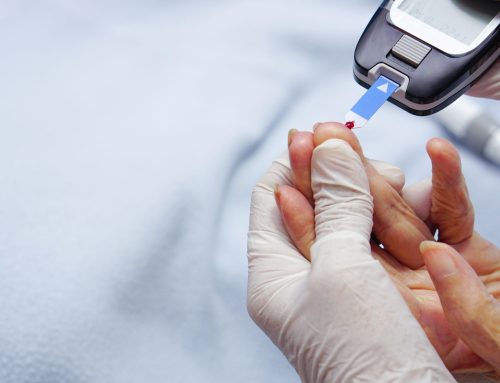
Metaphorically speaking, CoQ10 supplementation is our umbrella protecting against the risk of chronic degenerative diseases. Studies indicate that 100-300 milligrams of daily Coenzyme Q10 supplementation can reduce the risk of cardiovascular disease, type-2 diabetes, kidney disease, and liver disease.
We all want to live longer, with good health and good energy in our senior years. One factor that enhances our chances of living longer and better is our ability to avoid chronic degenerative diseases such as cardiovascular disease, diabetes, kidney disease, and liver disease. Coenzyme Q10 supplements can help.
The rationale for using CoQ10 supplements to enhance our chances for a long and healthy life is based on the role of Coenzyme Q10 in the production of cellular energy. In addition, Coenzyme Q10 has known antioxidant and anti-inflammatory effects [Mantle & Hargreaves].
Declining CoQ10 Bio-Synthesis with Increasing Age
By far, most of the Coenzyme Q10 that the cells have to work with comes from the body’s own bio-synthesis of Coenzyme Q10 [Mantle & Hargreaves]. Not from food.
Unfortunately, once we reach our 20s, our bodies gradually begin to produce less and less Coenzyme Q10 with increasing age [Kalen]. We cannot make up the loss by eating more food. We need daily CoQ10 supplementation.
This decline in the body’s bio-synthesis of Coenzyme Q10 may be directly linked to ageing and to diminished chances of a longer healthier life [Mantle & Hargreaves].
CoQ10 Supplements Not All Equally Well Absorbed
What is not generally well known is that there is considerable variability in the absorption and bio-availability of commercial CoQ10 supplements. It is really a gamble to purchase a CoQ10 supplement that does not have documented absorption and bio-availability.
In this context, there is much discussion about the form of the Coenzyme Q10 supplement, about whether a ubiquinone CoQ10 supplement or a ubiquinol supplement gives better absorption and better bio-availability.
A well-designed double-blind crossover study has shown that the formulation of the CoQ10 supplement is more important for absorption and bio-availability than the form – whether ubiquinone or ubiquinol – of the supplement is [Lopez-Lluch].
That is to say, the absorption of the CoQ10 supplements depends on dissolution of the CoQ10 raw material crystals at body temperature in the stomach and small intestines. This dissolution of the CoQ10 crystals depends, in turn, on the mix of carrier oils and excipients and on the heating and cooling process used in the making of the soft-gel capsules [Lopez-Lluch].
Clinical Trial Evidence for the Efficacy of CoQ10 Supplements
Cardiovascular Disease
The Q-Symbio Study enrolling 420 chronic heart failure patients showed that daily supplementation with 3 times 100 milligrams of ubiquinone Coenzyme Q10 for two years significantly improved the patients’ longevity and reduced the need for hospitalization [Mortensen].
Similarly, the KiSel-10 study enrolling 443 non-institutionalized senior citizens aged 70 – 88 years showed that daily supplementation with 2 times 100 milligrams of ubiquinone Coenzyme Q10 and 200 micrograms of an organic high-selenium yeast supplement significantly improved the senior citizens’ longevity and health-related quality of life [Alehagen].
Diabetes
Dr. David Mantle has reviewed the research literature on CoQ10 supplementation for type-2 diabetes patients. He makes the following points:
- Studies have shown depleted blood CoQ10 levels in patients with type-2 diabetes.
- Randomized controlled studies have shown that CoQ10 supplementation on the order of 100-200 milligrams per day for 3 – 6 months significantly improved fasting glucose and HbA1c glycated hemoglobin levels.
- A systematic review and meta-analysis of the results of 13 studies enrolling 765 patients has shown that supplementation with Coenzyme Q10 may improve glycemic control, decrease triglyceride levels, and improve HDL-C levels in patients with T2DM [Zhang].
Dr. Mantle and Dr. Hargreaves suggest several mechanisms by which CoQ10 supplementation can benefit type-2 diabetes patients [Mantle & Hargreaves]:
- enhancing the levels of cellular energy needed for glucose metabolism
- modulating the expression of genes related to glucose metabolism
- providing antioxidant protection against oxidative damage
Statins and Increased Risk of Diabetes and Increased Need for Coenzyme Q10
Dr. Mantle and Dr. Hargreaves state that the use of statin medications is associated with an increased risk of up to 40% of developing type-2 diabetes [Mantle & Hargreaves]. Moreover, statin medications are known to inhibit the body’s bio-synthesis of Coenzyme Q10, thereby making CoQ10 supplementation a necessity.
Chronic Kidney Disease
As with type-2 diabetes patients, chronic kidney disease patients have been shown to have significantly lower plasma CoQ10 levels compared to normal controls [Mantle & Hargreaves].
There is some evidence that daily supplementation with Coenzyme Q10 on the order of 3 times 100 milligrams is associated with 1) significant improvement in bio-markers of renal function and 2) reduced need for dialysis [Mantle & Hargreaves].
Again, similar to type-2 diabetes patients, patients with chronic kidney disease have a higher risk of developing cardiovascular disease. Thus, supplementation with Coenzyme Q10 may reduce the loss of renal function and reduce the risk of heart failure [Mantle & Hargreaves].
Dr. Mantle and Dr. Hargreaves say that the ratio of plasma Coenzyme Q10 to LDL + VLDL cholesterol should be considered more important in the prevention of atherosclerosis than the ratio of HDL cholesterol to LDL cholesterol. They point out that a 2018 meta-analysis showed that CoQ10 supplementation is associated with significant improvement in blood cholesterol, bio-markers of oxidative stress, and creatinine levels in chronic kidney disease patients [Mantle & Hargreaves].
Liver Disease
There have been relatively few clinical studies of Coenzyme Q10 status and/or supplementation and liver disease. Dr. Mantle and Dr. Hargreaves make the following points [Mantle & Hargreaves]:
- The liver is a major site of endogenous CoQ10 synthesis. Reduced CoQ10 synthesis in the liver because of compromised liver function is likely to have a deleterious effect on heart function.
- Both non-alcoholic fatty liver disease and alcohol-related liver disease are risk factors for cardiovascular disorders. Non-alcoholic fatty liver disease is associated with increased risk of arrhythmias, atherosclerosis, heart failure, and valve dysfunction.
- CoQ10 supplementation may benefit liver disease patients by reducing the extent of inflammation and oxidative stress.
- Two randomized controlled trials of CoQ10 supplementation of non-alcoholic fatty liver disease patients have shown significant reductions in blood bio-markers for inflammation and liver damage.
Conclusion: Coenzyme Q10 is Key to Healthy Longevity
- The quality and bio-availability of CoQ10 supplements varies greatly from product to product. It is important to buy a CoQ10 supplement that has documented absorption and bio-availability. The form of the CoQ10 supplement – ubiquinone or ubiquinol – is less of a consideration than is the formulation of the supplement [Lopez-Lluch]. The choice of the carrier oils and the heating/cooling process during the production of the CoQ10 capsules is very important.
- CoQ10 supplementation at a rate of 100-300 milligrams per day can promote healthy longevity by reducing the risk of chronic degenerative disorders such as cardiovascular disease, type-2 diabetes, kidney disease, and liver disease [Mantle & Hargreaves].
- CoQ10 supplements are safe, effective, and affordable. They have demonstrated beneficial effects on heart function [Alehagen; Mortensen].
Read our key article about CoQ10 and cardiovascular health in elderly people
Sources
Alehagen, U., Johansson, P., Björnstedt, M., Rosén, A., & Dahlström, U. (2013). Cardiovascular mortality and N-terminal-proBNP reduced after combined selenium and coenzyme Q10 supplementation: a 5-year prospective randomized double-blind placebo-controlled trial among elderly Swedish citizens. International Journal of Cardiology, 167(5), 1860-1866.
Kalén, A., Appelkvist E.L., Dallner G. (1989). Age-related changes in the lipid compositions of rat and human tissues. Lipids, 24(7):579–584.
López-Lluch, G., Del Pozo-Cruz, J., Sánchez-Cuesta, A., Cortés-Rodríguez, A. B., & Navas, P. (2019). Bioavailability of coenzyme Q10 supplements depends on carrier lipids and solubilization. Nutrition, 57, 133–140.
Mantle, D. & Hargreaves, I. (2019). Coenzyme Q10 and degenerative disorders affecting longevity: an overview. Antioxidants, 8: 44-53.
Mortensen, S. A., Rosenfeldt, F., Kumar, A., Dolliner, P., Filipiak, K. J., Pella, D., & Littarru, G. P. (2014). The effect of coenzyme Q10 on morbidity and mortality in chronic heart failure: results from Q-SYMBIO: a randomized double-blind trial. JACC. Heart Failure, 2(6), 641-649.
Zhang, S.-Y., Yang, K.-L., Zeng, L.-T., Wu, X.-H., & Huang, H.-Y. (2018). Effectiveness of Coenzyme Q10 Supplementation for Type 2 Diabetes Mellitus: A Systematic Review and Meta-Analysis. International Journal of Endocrinology, 2018, 6484839.
The information contained in this review article is not intended as medical advice and should not be used as such.









Leave A Comment